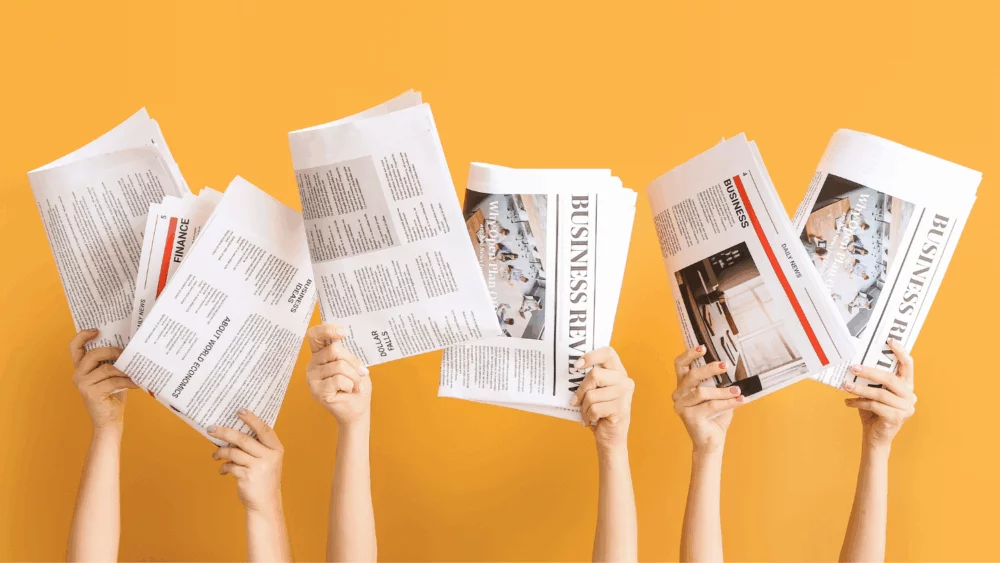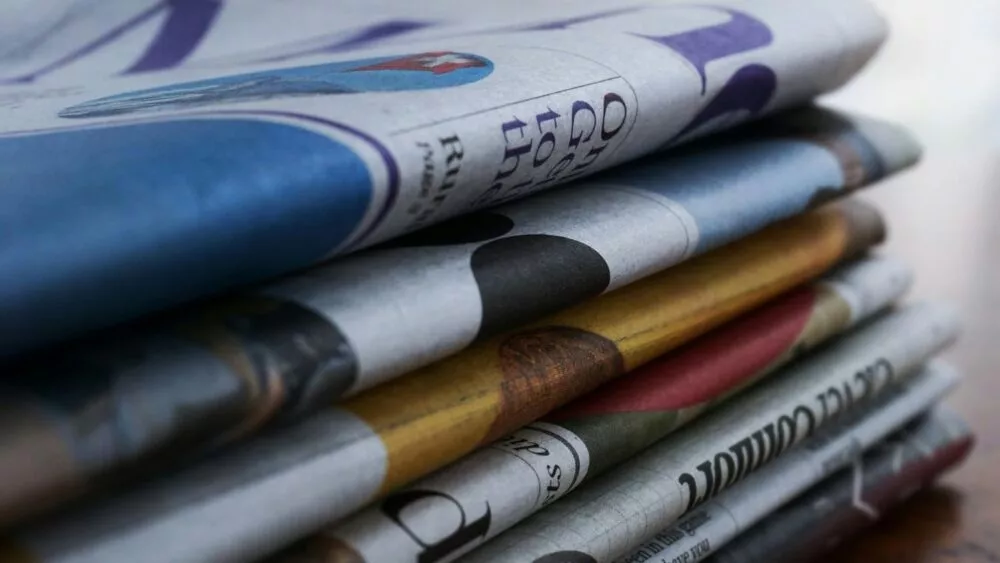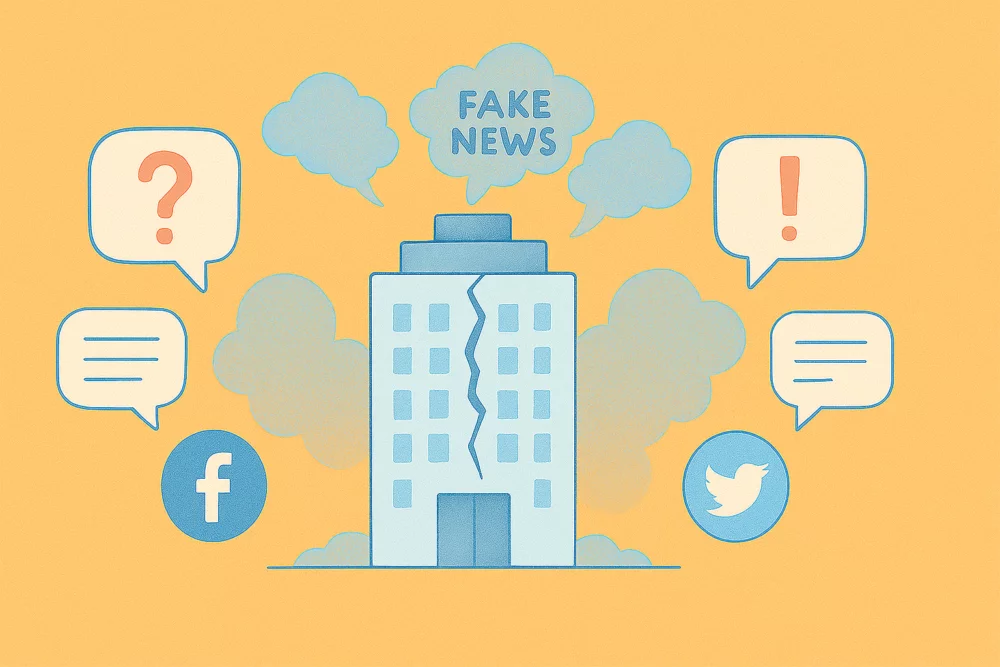According to the study "L'État des médias en France" published in 2023 by Cision, the evolution of the relationship between journalists and communicators is mixed. While 13% of information professionals believe that their relationships with press attachés have been more fruitful than last year, 18% consider them to have worsened.
Indeed, although they form an inseparable duo, journalists and communicators have deeply ambivalent relationships.
Indeed, although they form an inseparable duo, journalists and communicators have deeply ambivalent relationships.
Journalists and communicators: distinct objectives
Journalists are responsible for providing the public with accurate, verifiable, and newsworthy information, while communicators act as spokespeople, tasked with conveying a specific message or image, depending on the organization or individual they represent.
Jean-Baptiste Legavre, director of the journalism school at the French Institute of Press (IFP), describes them in a book as "associated rivals," a concept borrowed from sociologist François Bourricaud. While journalists and communicators must collaborate daily to disseminate information, they can also compete to control the narrative, information sources, or communication objectives.
To collaborate effectively, communication professionals must therefore make an effort to understand the challenges faced by their information counterparts, and vice versa. Simon Ruben, head of offerings at CFPJ (Centre de Formation et de Perfectionnement des Journalistes), explained in an interview, "For good press relations, one must think like a journalist. It's about putting yourself in their shoes."
Best Practices for Harmonious Relationships Between Journalists and Communicators
1- Maximum transparency
The two main priorities for journalists in 2023, according to the previously mentioned Cision study, are:
- Content accuracy,
- Being perceived as a trusted source.
Communicators must therefore be open and honest, avoiding concealing certain information or providing misleading data. "The demand for information traceability has become paramount," confirmed Bernard Sananès, president of the Elabe study and consulting firm, in a column published on Stratégies.
But this requirement for transparency does not only apply to communicators. When requesting information, journalists must also clarify their intentions and the context of their reporting to establish a climate of trust.
But this requirement for transparency does not only apply to communicators. When requesting information, journalists must also clarify their intentions and the context of their reporting to establish a climate of trust.
2- Increased responsiveness
Journalists often work with tight deadlines and need quick responses from their communicator counterparts. According to Cision, information professionals are indeed 41% concerned about their counterparts' inability to respond within the allotted time.
To establish fruitful relationships, communicators must understand and respect journalists' time constraints, demonstrating the greatest possible responsiveness.
3- Rigorous preparation
When an exchange is planned between a journalist and a communicator, or when an interview is organized through a press attaché, thorough preparation on both sides is often key to success.
It is essential for communicators to anticipate questions and prepare appropriate answers, while journalists must conduct preliminary research to ask relevant questions.
4- Anti-spam communication
One of the most common complaints from journalists against communicators is the incessant flow of unsolicited emails, text messages, and calls. They are offered topics that often have nothing to do with their media's editorial line or the topics they cover.
According to the Cision study, 93% of journalists say that less than 50% of the press releases they receive are relevant. Florence Pagneux, a journalist at La Croix, confessed in an article dedicated to press releases, "70% of press releases end up in my trash."
Communicators must therefore avoid sending out mass press releases at all costs and adopt a personalized approach with journalists.
5- Regular exchanges
Good collaboration between journalists and communicators often builds over the long term. Instead of only getting in touch when needed, maintaining regular communication helps build trust.
Regular phone calls, for example, are a good practice for creating strong bonds. But the power of face-to-face communication should not be underestimated: according to Cision, two-thirds of French journalists prefer physical press conferences to virtual events.
6- Strict confidentiality
Information shared with a journalist "off the record" must remain confidential. This information, sometimes revealed in informal conversations or provided solely to help the information professional understand the situation, is intended to remain secret.
While the practice of "off the record" is sometimes criticized, especially in political journalism, as explained in this Radio France article, it is important for journalists to respect the confidentiality of their sources. And of course, communicators should not abuse these often risky practices.
7- Constructive and mutual feedback
Good collaboration always relies on honest and constructive feedback. Journalists have an essential role to play in continuously improving press relations: by informing communicators about the relevance of the information provided, they can help them better tailor their future communications.
And what if communicators also provided feedback on the media coverage resulting from their collaboration with journalists? Indeed, their observations and comments might help journalists adjust their work and improve the quality of their information content.
8- Healthy management of disagreements
Disagreements may arise between journalists and communicators, even when they have trusting relationships.
Avoiding unnecessary confrontations and opting for open and respectful communication is essential to prevent tensions from escalating. Mutual understanding is key to preserving the quality of the relationship and resolving disagreements effectively.
It was in this spirit that we organized the talk "Journalists & Communicators: Getting Out of the Trench Warfare?" in late 2021, in partnership with Challenges and Hopscotch. The goal? Bringing together representatives from the worlds of information and communication to debate their relationships and adopt a constructive approach to finding solutions.
In conclusion, despite the differences that separate them, most journalists and communicators attach great value to their collaboration. According to Cision, information professionals consider press releases and press attachés to be their most useful sources. This puts an end to misunderstandings and definitively seals cooperation between journalists and communicators!
Ingrid de Chevigny
Ingrid de Chevigny







